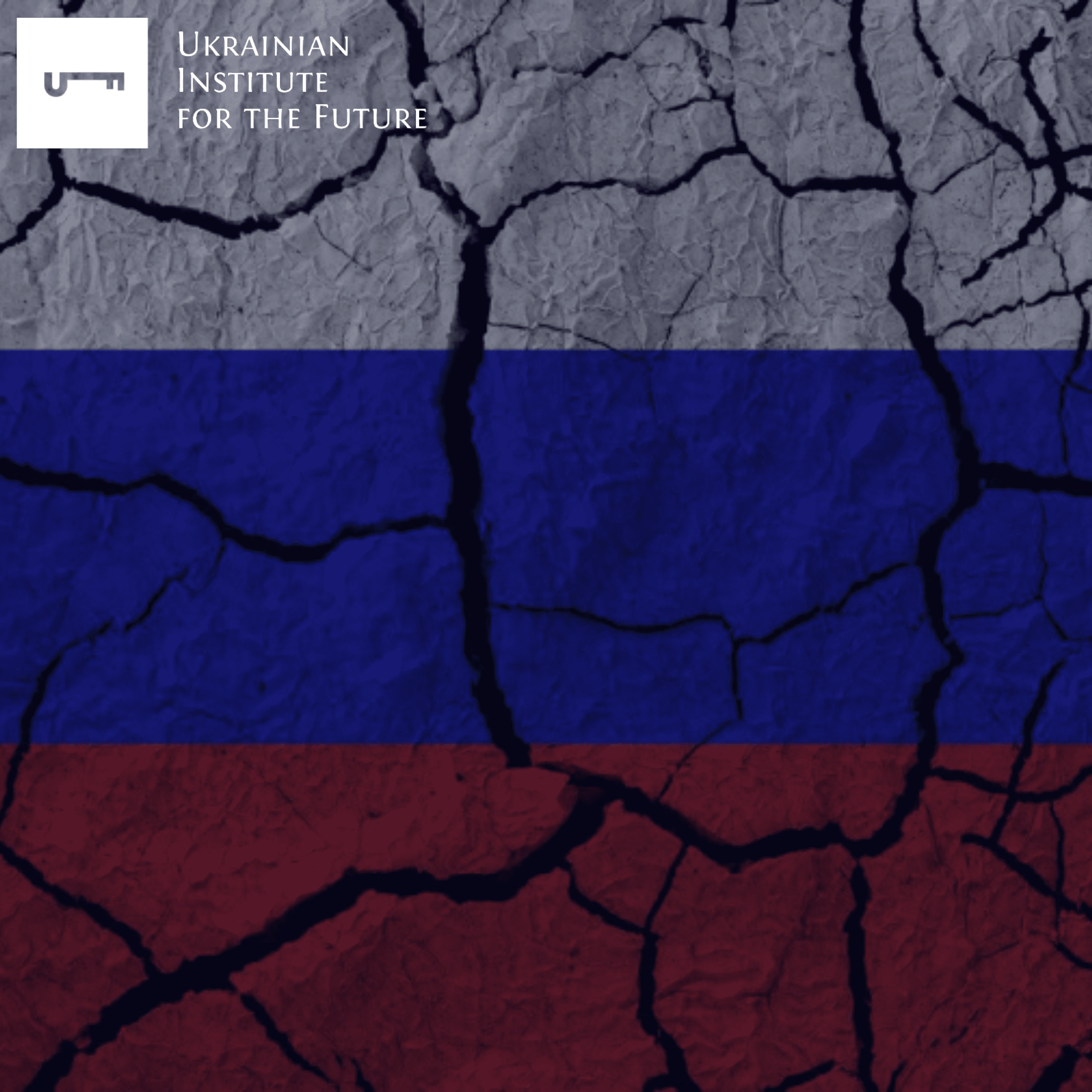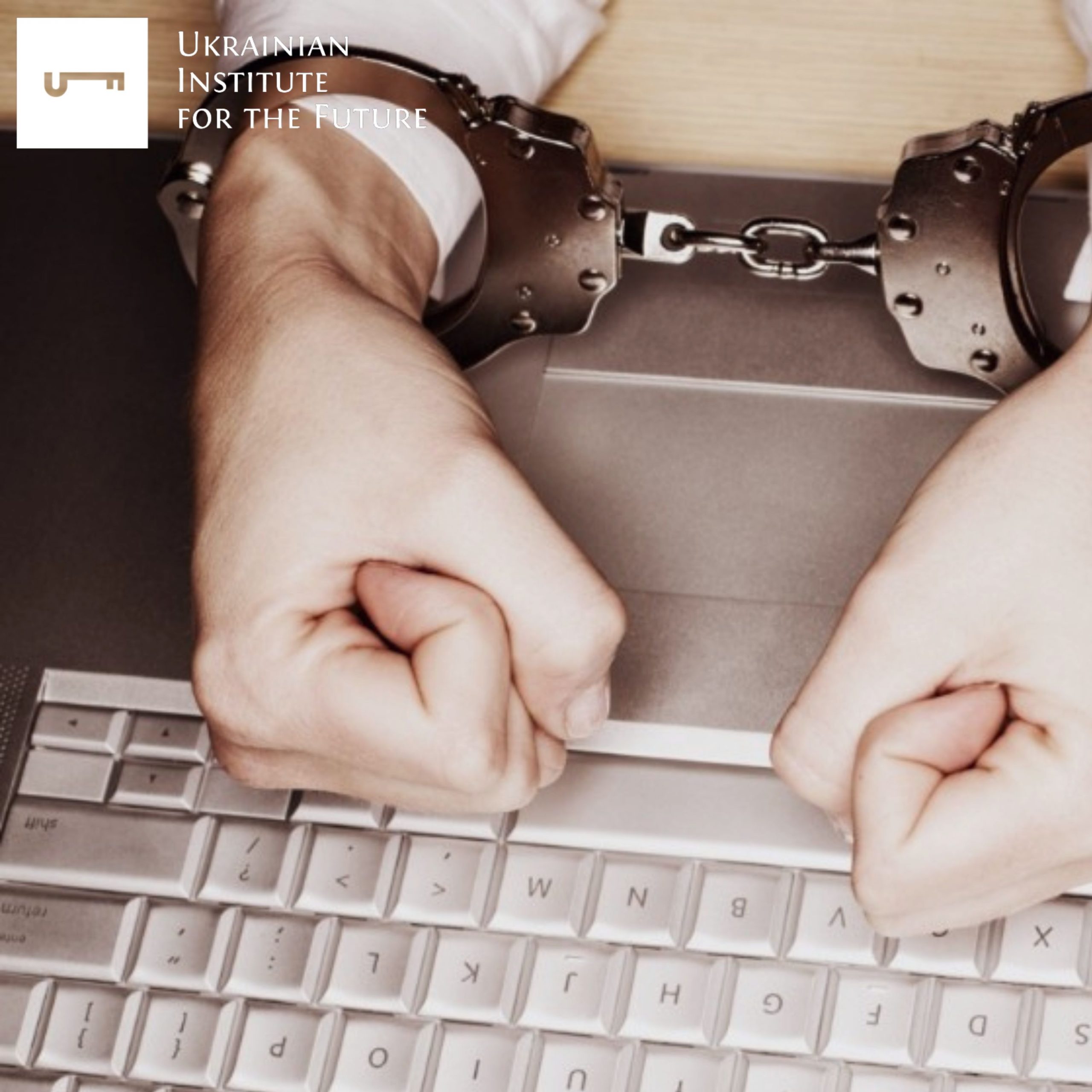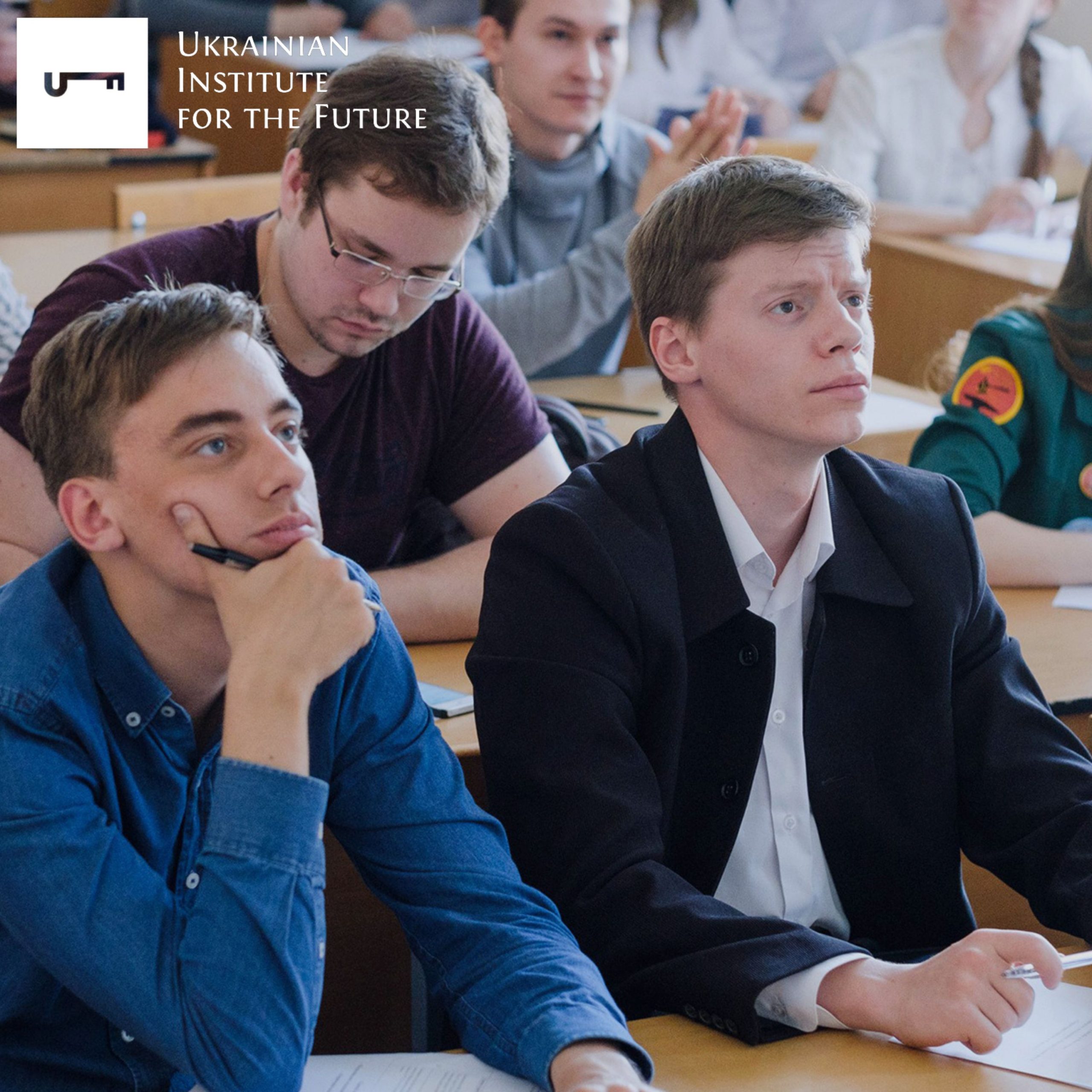Sergei Shoigu, Vladimir Putin, and Dmitry Medvedev simultaneously announced the danger of Russia’s collapse due to defeat in the war. Preserving Russia’s territorial integrity is a fixed idea from the early 90s, which Putin actively exploited from the first year of his reign and has gained new relevance in the last two years.
Looking for additional public support for the aggression against Ukraine, the Kremlin is trying to present it as a “people’s war”. Previous failures and the need for mobilization were explained by the fact that Ukraine allegedly lost, and now the “collective West” is confronting Russia on the battlefield. Recently, there has been a discussion of the inadmissibility of defeat, resulting in the destruction of Russia and the collective responsibility of its population.
The reasons for the current update of the narrative about the war for Russia’s integrity were: the prolongation of hostilities and the lack of apparent successes on the battlefield; Russians’ natural fears of repeating the “disastrous 90s” as a result of the collapse of the country after the defeat; increase in Western aid to Ukraine and speeches of individual analysts and publicists; actualization of the topic of the disintegration of Russia in Ukraine and the emergence of emigrant structures aimed at declaring the independence of several Russian regions.
The course for a “people’s war”, the goal of which will be to prevent the disintegration of Russia, is a trend in both the short and long term. Using this argument will silence critics and strengthen the position of Putin himself; to mobilize citizens, if not for voluntary participation in the war, then for their acceptance of tightening belts; fuel anti-American and anti-Ukrainian sentiments among the elites and the people; as well as fight back against emigrant initiatives. If this card is played correctly, it will maintain the stability of Putin’s regime even during a long war and lack of success on the front (but not under the condition of total impoverishment).
Event
On February 23, 2022, in a greeting on the occasion of Defender of the Motherland Day, Russian Defense Minister Sergei Shoigu emphasized that the “collective West” seeks to dismember Russia and deprive it of its independence by using Ukraine.
Moreover, the West aims to disintegrate Russia and establish control over its former parts, Vladimir Putin said in an interview with the TV channel ” Russia 1″ after the rally concert in Luzhniki, which took place on February 24. In his opinion, the Western states intend to “annihilate the former Soviet Union and its main part – the Russian Federation.” Russia can be accepted into the “so-called family of civilized nations, but only separately, each one separately.” According to Putin, “these plans are laid out on paper.” Under such a scenario, the Russian people in their current “version” may not survive, and instead, “there will be some Muscovites, Uralians, etc.”
In the article “Points of no return,” published in “Izvestiya” on February 27, Deputy Chairman of the Security Council of the Russian Federation Dmitry Medvedev issued threats against those “who first destroyed the USSR, and now are trying to destroy the Russian Federation.” According to him, “If the question of the existence of Russia itself seriously arises, it will by no means be resolved on the Ukrainian front together with the question of the future existence of the entire human civilization. And there should be no ambiguity here. We don’t need a world without Russia.”
Historical context
The issue of the country’s disintegration has never disappeared from the agenda of modern Russia – it was fueled by the “parade of sovereignty” of a number of regions in the early 1990s and, especially, the first lost Chechen war. For this reason, since the beginning of his presidency, Putin has been looking for an answer.
In an interview in 2000 for the book “From the First Face”, Putin explained the decision to start the Second Chechen War this way: “if we don’t stop it now, immediately, Russia as a state in its current form will not exist. At that time, it was about stopping the collapse of the country… I was convinced that if we do not stop the extremists now, then in some time we will be threatened with a second Yugoslavia throughout the territory of the Russian Federation, the Yugoslavization of Russia.”
During the next two decades, Putin repeatedly addressed the issue of the disintegration/collapse of Russia. The preparation and start of the aggression against Ukraine led to another surge of public statements on this topic.
In the film “Russia. The newest story” on the TV channel “Russia 1” on December 12, 2021, Putin said: “What is the collapse of the Soviet Union? It is the disintegration of historical Russia called the Soviet Union.” He added that he had seen European maps on which Russia was divided into several countries. “However, it’s not even a matter of maps, but the fact that… the president of one of the Eastern European countries told me directly at one of the meetings that for us in Europe, there was no question of whether Russia would collapse or not. We thought it was inevitable.”
At a press conference on December 23, Putin emphasized that “Russia cannot be defeated; it can only be destroyed from within.” This, in his opinion, happened during the First World War and in the 90s. “And who did it? Those who served foreign interests are not related to the interests of the Russian and other peoples of the Russian Empire, the Soviet Union, and the Russian Federation today.”
However, in an address on the occasion of the recognition of “L/DNR” on February 21, 2022, Putin laid the blame on his predecessors: “The collapse of our single country was caused by the historical and strategic mistakes of the leaders of the Bolsheviks, the leadership of the СPSU, made at different times in state building, economic, and national politics. The collapse of historical Russia under the name of the USSR is their responsibility.”
On September 16, at a press conference after the SCO summit in Samarkand, Putin stated that “for decades, the idea of the collapse of the Soviet Union, historical Russia, and Russia as such has been constantly cultivated in Western countries.”
In an address on the occasion of the mobilization on September 21, Putin emphasized that “the goal of the West is to weaken, divide, and ultimately destroy our country. They are already directly talking about the fact that in 1991 they were able to split the Soviet Union, and now the time has come for Russia that it should disintegrate into many regions, mortally at war with each other.”
At a meeting with historians on November 4, Putin said that the territory of Ukraine was actually used to create an “anti-Russia.” It was allegedly done to “bring the disintegration of our country.”
From “Kyiv in three days” to “preserving the integrity of Russia”
Identical statements by three top officials over five days fit perfectly into the trend of the “big turn” from the narrative of “Kyiv in three days” to the narrative of “victory at any cost” to avoid retribution. “This propaganda stage takes a much more cynical approach,” says the Jamestown analyst Ksenia Kyrylova Foundation. In this case, the propaganda no longer tries to prove that the war was justified but emphasizes that “we have no other way out but victory” because in case of defeat, “Russia will be destroyed.” In this case, a relatively normal value in the form of “survival of the country” is formally declared, but from a moral point of view, somewhat cynical wording is used. It mentions, “it doesn’t matter what we did, we don’t want to be responsible for the consequences, and we need to win to rid ourselves of this responsibility.”
The declaration of this turn at the highest level dates back to September 21, 2022 – Putin’s address on the mobilization occasion, which has already been discussed. Not for the first time, the president admitted that the war was being waged “to protect our Motherland, its sovereignty and territorial integrity,” and not for the supposed “denazification” and “demilitarization” of Ukraine (it is noteworthy that these terms were not mentioned).
In September-November, to justify and encourage mobilization in Russia, some officials were allowed to use the word “war” (details – in the UIF analysis ). At the same time, Yevgeny Prigozhin criticized the children of high-ranking officials for their reluctance to “get into the trenches.”
The statement of RT head Margarita Simonyan in Vladimir Solovyov’s talk show on November 29, 2022, was highly symptomatic: “If we manage to lose, The Hague, conditional or concrete, is waiting even for the janitor who sweeps the cobblestones inside the Kremlin wall. What does it matter to us that one more district of Kyiv will be left without electricity or not at all? If we manage to do it, the scale of the disaster that our country will turn into cannot even be imagined.”
On December 7, Putin held a video conference with the Russian Human Rights Council, where he made several statements unrelated to the meeting topic. In particular, he noted that the “special operation” in Ukraine could be a “long process”, and the acquisition of new territory is a “significant result” for Russia (details in the UIF analysis ).
On February 2, 2023, speaking on the occasion of the 80th anniversary of the Battle of Stalingrad, Putin used the opportunity to once again emphasize the special contribution of the USSR to the defeat of nazism, justify the invasion of Ukraine, threaten European countries, and express confidence in the final victory – after a “fundamental turning point” in the war (details in the UIF analysis ).
Finally, Putin’s message to the Federal Assembly on February 22 declared the threats to Russia from the West (“The elites of the West do not hide their goal: to inflict a “strategic defeat of Russia”. What does it mean? What is it for us? It means to end us once and for all, that is, they intend to transfer the local conflict into the phase of global confrontation. This is how we understand all this and will respond accordingly because, in this case, the very existence of our country is at stake”). On the other hand, it promised stability to the population (“There is such a constant expression: “cannons instead of oil”. The country’s defense is, of course, the most important priority, but when solving strategic tasks in this area, we must not repeat past mistakes, and we must not destroy our own economy. We have everything to ensure security and create conditions for the country’s confident development”). However, there are substantial reasons to believe that it is no longer possible to achieve the desired balance between the war and the stability of Russia (details – in the UIF analysis ).
Therefore, as the hostilities drag on and there are no apparent successes at the front, the idea of a long “people’s war” that is “impossible to lose” will be increasingly used by the Kremlin inside Russia.
The disintegration of Russia as the main argument in favor of the “people’s war”
Constructing the narrative of a “people’s war” requires a main argument in its favor – the threat to Russia’s territorial integrity is best provided. There are a number of reasons why the activation of this topic happened just now.
- The absence of significant successes at the front, notable defeats (Kharkiv region, Kherson), and significant losses (Makiiv PTU No. 19) pose questions about the goals of the war and their fundamental attainment. Guaranteeing the country’s territorial integrity is a definitive explanation for any hostilities, and it is not limited in time. “Denazification” and “demilitarization” will no longer be mentioned by the Kremlin to justify the war – its place has finally been taken by the fight against the aggression of the “collective West” and the prevention of enemy invasion into Russian territory.
Similarly, the struggle for the country’s inviolability will explain all future unpopular events – from re-mobilization to a decrease in the standard of living. Any attempt at an anti-war speech by local elites or ordinary Russians can be equated with “treason to the Motherland” – since it is not a “people’s war” for the integrity of Russia and not just a “special operation”.
- The fear of the potential disintegration of Russia is extremely deep in the minds of Russians. According to the 2020 survey by VTCIOM, the main fears of the Russian population are social injustice (70%) and a decrease in income (68%). According to two measurements by the Center for the Study of Political Culture of Russia in 2022, anxiety about rising prices and fears about survival increased from 38 to 43%. According to the results of research conducted in December 2022 by the NAFI analytical center together with the TSK Insurance House, Russians are afraid of increasing expenses due to rising prices (29%), falling ill with some serious illness (27%), and losing their income (27%). The Levada Center’s 2022 data stand out – respondents are most afraid of “illness of loved ones, children” (82%), “world war” (56%), and “arbitrariness of the authorities” (53%).
The disintegration of Russia does not directly appear in the top ten anxieties of any of the polls. Still, beyond any doubt, Russians cannot help but understand that this process will mean realizing their main fears – poverty and injustice. The matter here is not in the conditional imperialism of the Russian people but in their negative empirical experience of the collapse of the USSR and the “disastrous 90s”. As long as the collapse of Russia is associated with impoverishment (in the long term), the Kremlin will easily be able to mobilize Russians to protect the state borders. Hypothetically, only a total drop in the standard of living here and now will make Russia’s population indifferent to the country’s fate (as it happened in 1990-1991).
- The Russian elite and Putin believe in the possibility of Western tricks to destroy Russia from the inside – starting with the infamous “Dulles Plan”. For example, one can cite the map of the division of Russia into 17 parts allegedly initiated by the US government. Dmytro Kiselyov said on the air of the TV channel “Russia 1” that the Commission for Security and Cooperation in Europe (aka the Helsinki Commission of the USA) has developed a project called “Decolonization of Russia: a moral and strategic imperative.” Indeed, on the website of the US Helsinki Commission you can find an event called “Decolonizing Russia: A Moral and Strategic Imperative”, however, it does not mention the division of Russia at all, and the map demonstrated by Russian propagandists appeared as early as 2021.
At the same time, the authorities of Western countries have repeatedly refuted the thesis about the intention to destroy Russia. “The USA and European countries do not seek to control or destroy Russia. The West did not plan to attack Russia,” US President Joe Biden stressed on February 21, 2023. Similarly, on February 23, the head of the British Foreign Ministry, James Cleverley, made a similar statement, assuring at the same time that Russians, Russian culture,and history are respected.
Commenting on Putin’s statements, Russian opposition journalist Igor Yakovenko said that the West is most afraid of Russia’s disintegration and will try to preserve it. Russian émigré political scientist, Vasiliy Zharkov, holds a similar opinion: “When we start talking about the possible division of Russia today, we create the risk of additional mobilization and consolidation of Russian society around Putin. It is a very harmful idea.” Western analysts polled by Politico magazine favor caution in the desire to destroy Russia.
On the other hand, a senior researcher at The Jamestown Foundation, Janusz Bugaisky, in the summer of 2022, published the book Failed State: Guide to Russia’s rupture; the former commander of the US Army in Europe, Ben Hodges, named three reasons for the collapse of Russia; and the forecast for 2023 report by Atlantic Council begins with the words: “Prepare for the future collapse of Russia” (21% of the 167 polled analysts answered that the fate awaits Russia failed state. 40% of respondents cited the collapse of Putin’s regime as the reason for the collapse of the state.)
- Ukraine is increasingly betting on the disintegration of Russia – and it doesn’t matter if it’s serious or just for the public. A map of the division of Russian territories hangs on the wall of Ukraine’s head of military intelligence, Kyrylo Budanov. On his birthday on January 4, he cut a cake in the shape of Russia. On February 26, Oleksiy Danilov, Secretary of the National Security and Defense Council of Ukraine, stated that “the fragmentation of Russia is a process that is already underway and that Putin initiated it.
- In the summer of 2022, Russian public associations became especially active, setting themselves on the task of the collapse of Russia and the declaration of independence of several Russian regions: “Grazhdański sovet“, “Liga svobodnykh natsii“, “Svobodnyi Idel-Ural“, and “Forum svobodnykh narodov Post Rossii“. Their actions in European capitals and appeals to world leaders for help have not been left out without a response from the Kremlin.
Thus, the course for a “people’s war”, the goal of which will be to prevent the disintegration of Russia, is a trend in both the short and long term. Using this argument will silence critics and strengthen the position of Putin himself; to mobilize citizens, if not for voluntary participation in the war, then for their acceptance of tightening belts; fuel anti-American and anti-Ukrainian sentiments among the elites and the people, as well as fight back against emigrant initiatives. If this card is played correctly, it will maintain the stability of Putin’s regime even during a long war and lack of success on the front (but not under the condition of total impoverishment).




